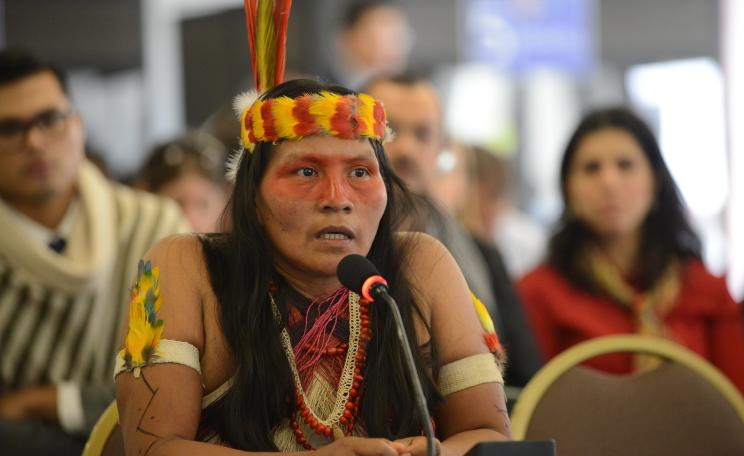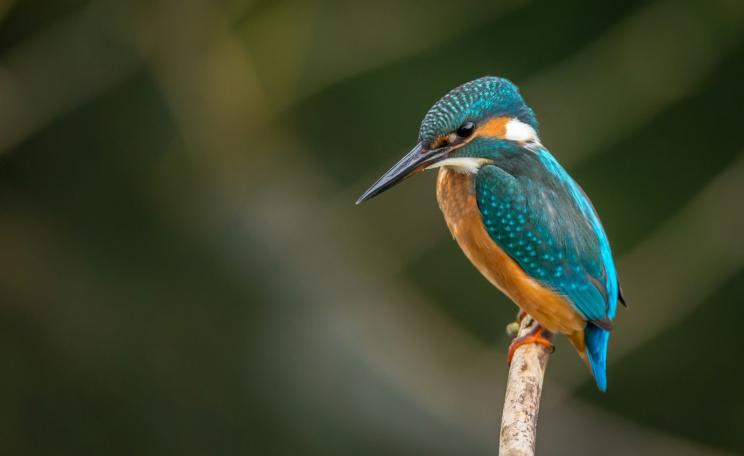Since the creation of the park, more than 200 rangers have lost their lives on duty.
There are as few as one thousands of mountain gorillas alive today and the species was listed as endangered by the IUCN in 2018. And yet a third of the surviving population is currently at direct risk because of human conflicts and resource extraction.
This article has been published through the Ecologist Writers' Fund. We ask readers for donations to pay some authors £200 for their work. Please make a donation now. You can learn more about the fund, and make an application, on our website.
The endangered animals, who share 98 per cent of DNA with humans, live in the eastern corner of the DR Congo. Virunga is a tinderbox where disputes over resources and territory have led many people to invade and exploit the area, causing deforestation, poaching, and illicit farming.
As a result, the elusive apes have fallen off researchers’ radars. Alain Mukiranya, director of Gorilla Ambassadors, a youth program for the protection of these animals, tells The Ecologist: "The conflict doesn't allow monitoring of the endangered gorillas, blocking conservation efforts in the park."
Guns
The mountain gorilla sector of the park, which is situated in the southern part of the area and crosses the border between Rwanda and the DRC, has been the scene of fierce fighting since October 2021.
In recent days, the rebels have approached Goma, the capital of the region, and controlled the main road passing through the park.
Mukiranya adds that "the rangers no longer have access to the Mikeno gorilla sector” - a protective zone located within this southern area of Virunga NP, mainly bordering Rwanda, but also Uganda.
After the gorillas flee war zones, it’s difficult to know what gorillas eat, how they fare in the event of illness, or how many births or deaths have been there."
Since the creation of the park, more than 200 rangers lost their lives on duty, despite always being well-armed for the case of ambush. This proves that protecting this important biodiversity hub is a fight that cannot be won only with the help of guns.
Hostage
Mukarinya has been educating the next generation of gorilla conservationists about the importance of conserving and protecting mountain gorillas, and this has led to a reduction in threats from poaching and habitat loss, he says.
Since the creation of the park, more than 200 rangers have lost their lives on duty.
A region of tropical highlands, volcanoes, and rolling savannah, Virunga is tucked up against the borders with Rwanda and Uganda. Established in 1925, when the nation was still a Belgian colony, it is Africa's oldest national park.
However, government neglect has created perfect conditions for the rebels. Since the 1990s, many armed groups with different political and economic agendas have settled in Virunga and engaged in elephant poaching as well as ivory trafficking.
Besides, some armed groups such as Mai Mai militias have also been exploiting mining resources, including coltan, cassiterite, and gold, harming the ecosystem. Reportedly, they also take civilians hostage, forcing them to do this dirty and dangerous job.
Borders
Decades of conflict over land, minerals, and resources have left a negative mark on the area's wildlife.
"In August, we lost a silverback gorilla; The circumstances of the death are not known due to the lack of accessibility of the area, " says Mukiranya, who the locals informed about this tragic event.
"Faced with the sounds of boots and weapons, the gorillas react like humans—they run towards a calm place," he says.
"In the past, some groups of gorillas had even crossed the border to Rwanda due to scavenging fights that expelled them out of their natural habitat.
“Gorillas’ habitat has been reduced as a result of deforestation and agricultural expansion. Nevertheless, 50 per cent of Africa's terrestrial species still rely on the park as their home, with forest and savanna elephants, hippos, okapis, and lions filling the top of the list."
Auction
Testifying the richness of this place is the fact that more bird species are found on the 790,000 hectares of the Virunga than in the entire United States, the park conservationists claim.
The mineral richness of the area is also not ignored by the leaders of the country. In spite of not being in control of the park, earlier this year, the DRC government announced its plans to auction oil blocks that overlap with the protected area.
It is claimed that oil discovery would bring economic development to the Congolese people, who are among the five poorest nations in the world. In 2021, nearly 64 per cent of them lived on $2 per day, according to the World Bank.
Cease-fire
For John Primo, a young environmentalist and an artist from the city of Goma, "the extraction of oil in the park makes no sense because it would contribute to global heating". He has campaigned for a halt to these devastating plans.
Any oil exploration would only speed up the deforestation rate in the DRC, which is currently placed second after Brazil.
Different approaches to resolving the insecurities have been proposed for more than 20 years, yet the issue has remained unresolved.
There have been a number of intra-Congolese talks and cease-fire agreements, and fighters have been the target of combined military actions between the DRC and some of its neighbours.
Confrontation
None of these initiatives has resulted in a material improvement in the establishment of durable peace in the country's eastern region.
The Congolese army and the rebel organization M23 are now engaged in heavy combat, sending shocks across the civilian population and wildlife alike.
The Congolese government has refused to engage in negotiations with its adversary until it vacates the areas it has taken. It has also accused Rwanda of helping the organization, which has increased the risk of military confrontation between the two neighboring countries.
The broad Congolese population remains adamant about the need to bring lasting peace, a cause for which they are ready to protest, often risking imprisonment.
If gorillas and forests are to be saved, good governance and respect for human rights, accompanied by a serious peace initiative, must be established.
This Author
Robert Bociaga is a journalist and photographer focused on the global South. He holds a master’s degree in law and tweets at @BociagaRobert. You can find more of his work here: www.robert-bociaga.com
This article has been published through the Ecologist Writers' Fund. We ask readers for donations to pay some authors £200 for their work. Please make a donation now. You can learn more about the fund, and make an application, on our website.



